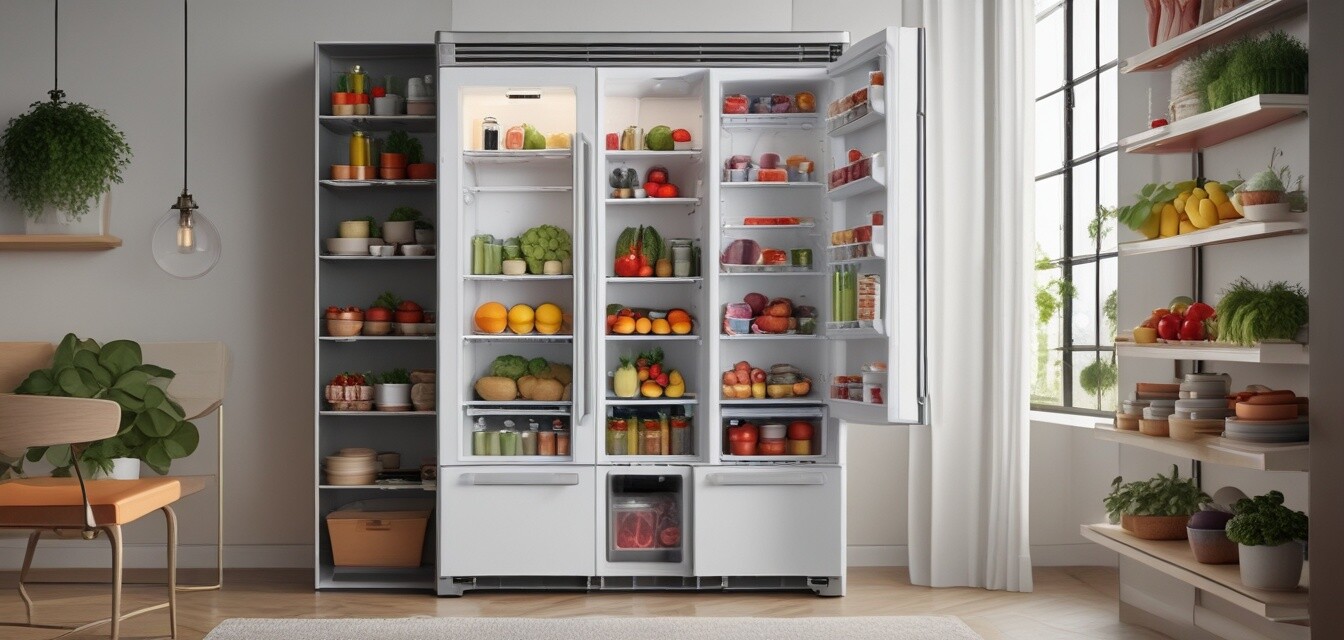
Tips for Maintaining Energy Efficient Refrigerators
Key Takeaways
- Regular cleaning and maintenance enhance performance and energy savings.
- Proper temperature settings keep food fresh while minimizing energy usage.
- Understanding the components of your refrigerator helps in troubleshooting issues.
- Sealing and insulation matter for maintaining efficiency.
- Routine checks can prevent costly repairs and extend the life of the appliance.
Maintaining your energy-efficient refrigerator is crucial for achieving peak performance and long-term operation. Regular upkeep not only ensures your fridge runs smoothly but also enhances energy savings, helping you keep those utility bills low. In this article, we’ll walk you through essential tips and techniques to extend the life of your appliance while maximizing its efficiency.
Understanding Your Energy-Efficient Refrigerator
Before diving into maintenance tips, it’s important to understand how your energy-efficient refrigerator operates. These models are designed with advanced technology to consume less power while maintaining optimal cooling performance. Familiarizing yourself with key components will help you identify potential issues faster.
| Component | Function |
|---|---|
| Compressor | Compresses refrigerant gas to cool down the interior. |
| Condenser Coils | Releases heat from the refrigerant allowing it to condense. |
| Evaporator Coils | Absorbs heat to cool the interior of the refrigerator. |
| Thermostat | Regulates the temperature inside the fridge. |
Essential Maintenance Tips
1. Keep the Coils Clean
Dirty condenser coils can significantly reduce the efficiency of your refrigerator. Make it a habit to clean them every six months. Use a coil brush or a vacuum with a brush attachment to remove dust and debris.
2. Check and Maintain Seals
Door seals are critical for keeping cold air in and warm air out. Check for any cracks or tears and clean them regularly to ensure a tight seal. You can perform a simple test by closing the door on a piece of paper; if it pulls out easily, it may need replacement.
3. Optimize the Temperature Settings
The ideal temperature for a refrigerator is around 37°F (3°C) and 0°F (-18°C) for the freezer. Regularly check the settings to ensure they are optimal for food safety and energy efficiency.
4. Organize Your Refrigerator
Keeping your refrigerator organized not only helps you find items but also ensures better airflow. Avoid overcrowding and use clear bins for easy visibility.
5. Defrost Regularly
If your refrigerator does not have a frost-free feature, be sure to defrost it regularly to prevent ice buildup that can affect efficiency.
Understanding Energy Ratings
When considering the efficiency of your refrigerator, pay attention to the energy ratings. Refrigerators with an Energy Star rating meet strict energy efficiency guidelines set by the EPA. Knowing the rating can help you assess the performance level of your appliance.
Common Issues and Solutions
| Issue | Solution |
|---|---|
| Fridge not cooling | Check the thermostat settings and ensure coils are clean. |
| Water pooling inside | Check the defrost drain for any clogs. |
| Noise from the appliance | Inspect for objects that may be vibrating or a faulty compressor. |
Energy Saving Techniques
In addition to maintaining your refrigerator, consider these techniques to improve energy savings:
- Keep the fridge away from heat sources like ovens and direct sunlight.
- Limit the frequency of door openings to maintain inner temperature.
- Allow warm food to cool before placing it inside the refrigerator.
Pros
- Lower energy bills with efficient operation.
- Extended lifespan of the appliance.
- Better food preservation and safety.
Cons
- Initial cost can be higher than non-efficient models.
- Requires consistent maintenance to operate effectively.
Conclusion
By implementing these tips, you can ensure that your energy-efficient refrigerator not only operates at peak performance but also saves you money in the long run. Remember, regular maintenance extends the life of your appliance and helps contribute to a greener planet.
For more information on optimizing your home appliances, check out our Tips and How-to Articles or explore more about Refrigerators to enhance your kitchen efficiency!